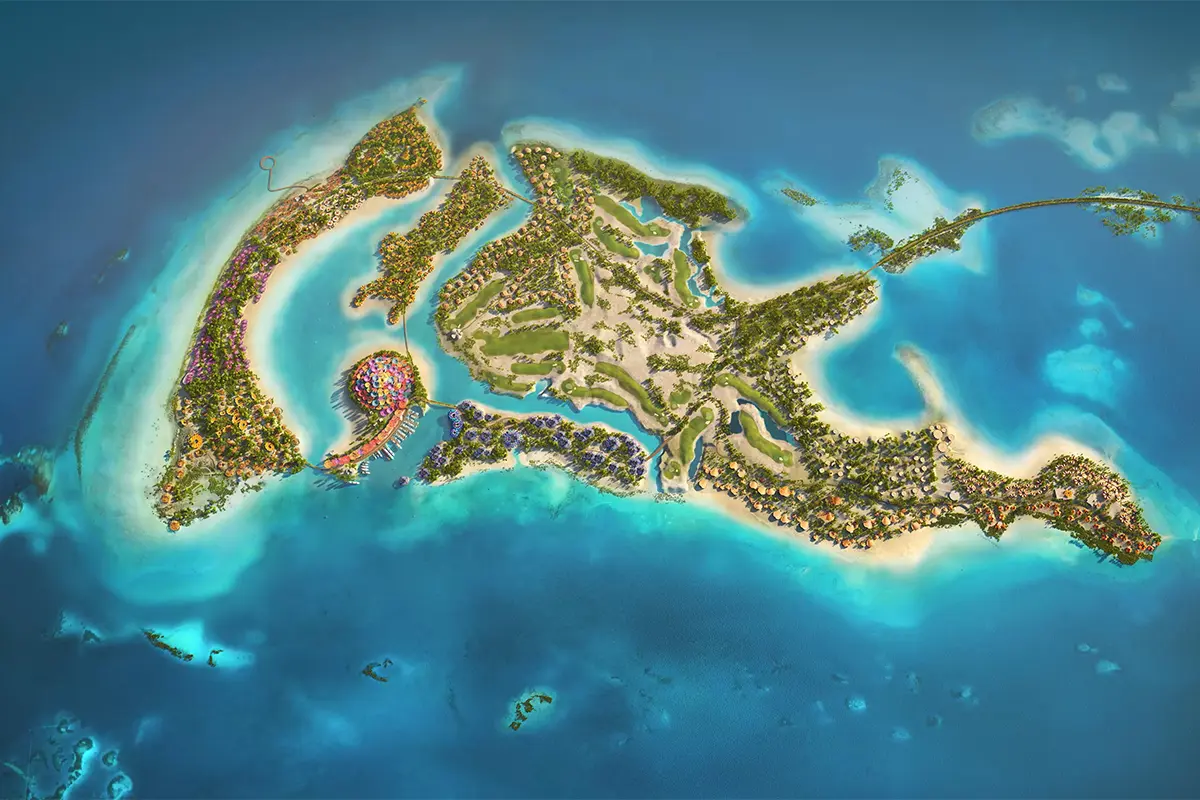Saudi Arabia’s Red Sea and AMAALA are standout examples of regenerative tourism
The tourism industry is a global economic powerhouse, creating jobs, feeding growth, and connecting the world like never before.
Travel and tourism contribute 10.4 percent of global GDP. From 2014 to 2019, the sector generated one in every five new jobs worldwide. Last year, tourism accounted for almost 11 percent of Italy’s economy and is expected to support 100,000 additional jobs in 2024, according to The World Travel & Tourism Council (WTTC).
Yet, this growth has come at a significant environmental cost: Tourism is also responsible for around 8 percent of global greenhouse gas emissions, according to the WTTC.
Sustainable tourism
By the 1990s, the negative environmental effects of unchecked tourism, including habitat destruction, pollution, and climate change, started to become evident. This led to a shift toward “sustainable tourism”, partially driven by the sustainability frameworks introduced at the Earth Summit — also known as the United Nations Conference on Environment and Development — in Rio de Janeiro in 1992.
Following the summit, many countries took the initiative to bring sustainability to tourism. Australia, for instance, launched a National Ecotourism Strategy in 1994, introducing guidelines for sustainable tourism practices. Mexico, one of the most visited countries globally, launched sustainable tourism initiatives, such as Agenda 21 for Tourism in 2002. The Mexican initiatives’s name is a reference to one of the Earth Summit’s sustainability frameworks.
Regenerative tourism
As the world became increasingly conscious of these environmental impacts, pressure mounted for the industry to prioritize environmental sustainability. A failure to address these issues not only threatens the long-term resilience of tourism destinations but also risks alienating travelers who want to go to more sustainable places. Research this year from Booking.com showed that 83 percent of travelers expressed the importance of making sustainable travel choices.
However, merely sustaining what is already damaged and vulnerable is not enough. To tackle environmental degradation, we need to address the underlying causes and work to improve them. This approach, known as “regenerative tourism”, may hold the solution for our 21st-century tourism challenges.
Regenerative tourism recognizes that visitors and destinations are part of a living system embedded within the natural environment. Because investing in nature enhances a destination’s value, it also offers a business opportunity for industry stakeholders. In Mexico, tourism is now growing beyond sustainability, with a new luxury regenerative development called Xala, set to open on the country’s Pacific coast in late 2026. This project aims to provide a regenerative tourism experience by creating programs to preserve local species such as turtles, reptiles, and ocelots.
Saudi Arabia is an eco-friendly destination
Meanwhile, Saudi Arabia’s development strategy, Vision 2030, aims to position the Kingdom as an eco-friendly tourist destination. Red Sea Global is a key driver of this vision. Through this development, we are creating luxurious and regenerative tourism destinations on the country’s western coast.
Our flagship destinations — The Red Sea and AMAALA — seek to enhance the Kingdom’s natural habitats, contribute to economic growth, and establish Saudi Arabia as a leader in regenerative tourism. To mention just one example, The Red Sea, upon completion, will be the world’s largest tourism destination powered entirely by renewable energy. In fact, some 760,000 solar panels are already in place to power the first phase and one of the world’s largest battery storage facilities is built.
In Australia, tourism in the Great Barrier Reef region attracts millions of visitors each year. However, tourism also challenges the reef’s health. Passions of Paradise, an eco-certified tourism operator, offers snorkeling and diving trips to the Great Barrier Reef using a high-efficiency sailing catamaran to reduce emissions. To help protect the reef, the operator also participates in reef monitoring and coral-planting programs.
Read more: Red Sea Global and Four Seasons reveal new resort at Triple Bay AMAALA
At The Red Sea, our pilot project to garden corals is showing promising results. We monitor around 300 reef sites, rescue and relocate corals, and test techniques to restore reefs. The project’s first phase was successful, with 87 percent of 800 coral fragments from 75 donor colonies surviving. The second phase, involving 2,000 fragments from more than 150 donor colonies, is now in progress.


A path forward
These efforts and their successes are proof that regenerative tourism offers us a path forward — not only toward saving the planet and mitigating harm from climate change but also toward uplifting the local communities that neighbor our destinations. At Xala in Mexico, the developers are constructing a cultural center, soccer field, skate park, and beach club for children.
Between Red Sea Global’s two flagship destinations, in a local community called Al Wajh, we’re establishing a vocational training academy to equip local talent with the necessary skills to lead the country’s tourism sector, with the goal of training 10,000 young people by 2030. This follows a pilot program that trained 430 young people who all found jobs at our newly opened destination, either with us directly, or with one of our partners.
The opening of our third resort last month marks a significant shift in the tourism industry, and not only in Saudi Arabia. We are not only discussing and introducing environmental initiatives but are also driving tourism forward from the ground up, one regenerative resort at a time.
Raed Albasseet is the group chief environment and sustainability officer at Red Sea Global.
For more op-eds, click here.
